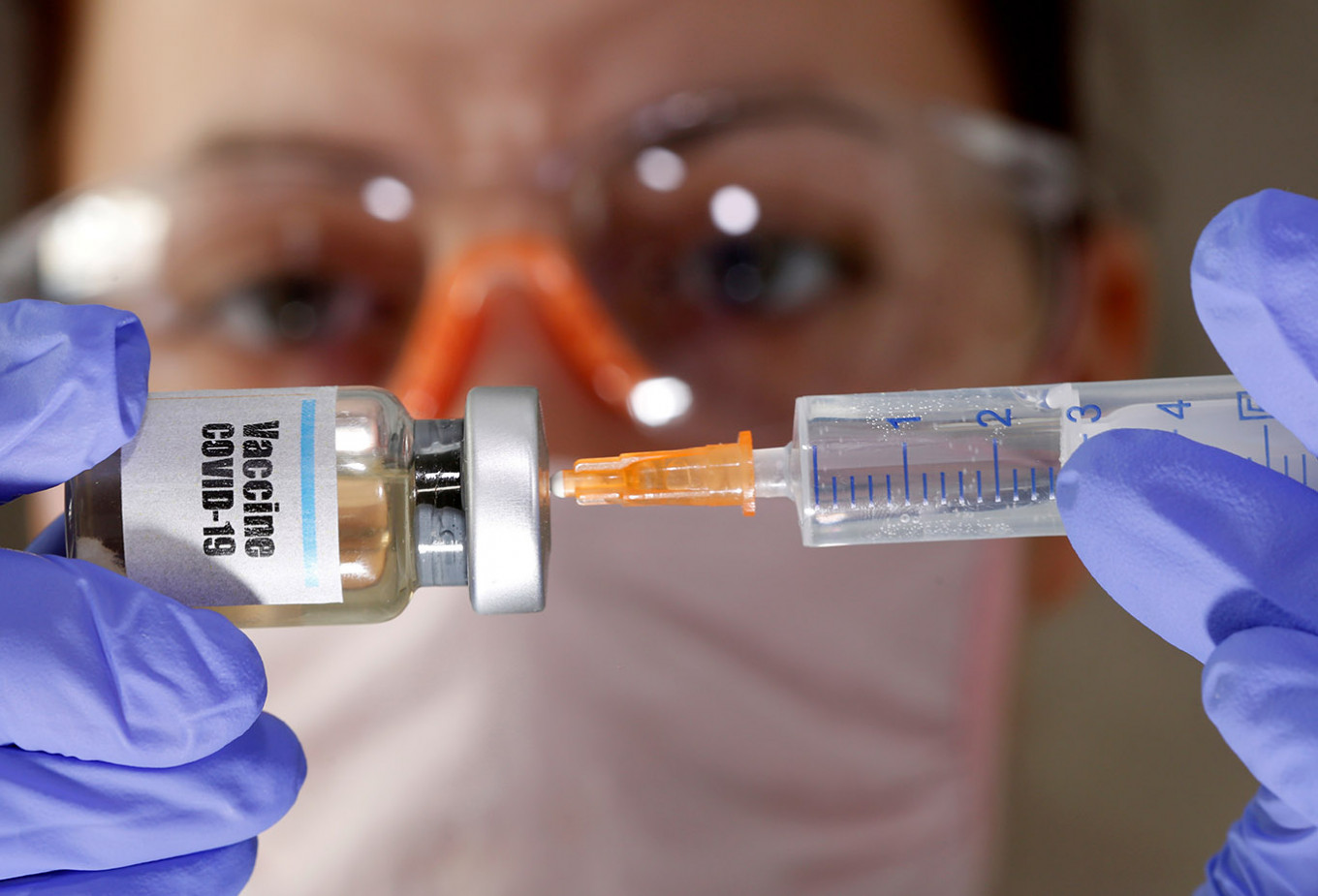Popular Reads
Top Results
Can't find what you're looking for?
View all search resultsPopular Reads
Top Results
Can't find what you're looking for?
View all search resultsModerna's COVID-19 vaccine worked well in monkeys: Study
Change text size
Gift Premium Articles
to Anyone
U
S biotech firm Moderna's COVID-19 vaccine induced a robust immune response and prevented the coronavirus from replicating in the noses and lungs of monkeys, a study in the New England Journal of Medicine said Tuesday.
The fact that the vaccine prevented the virus from replicating in the nose is seen as particularly crucial in preventing it from being transmitted onward to others.
The same outcome did not occur when the University of Oxford's vaccine was tested on monkeys, though that vaccine did prevent the virus from entering the animals' lungs and making them very sick.
In the Moderna animal study, three groups of eight rhesus macaques received either a placebo or the vaccine at two different dose levels -- 10 micrograms and 100 micrograms.
All vaccinated macaques produced high levels of neutralizing antibodies that attack a part of the SARS-CoV-2 virus used to invade cells.
Notably, monkeys receiving both dose levels produced these antibodies at levels higher than those found in humans who have recovered from COVID-19.
The authors reported that the vaccine also induced the production of a different immune cell known as T-cells that may have helped boost the overall response.
A major area of concern is that vaccines under development could actually backfire by amplifying rather than suppressing the disease.
So-called vaccine-associated enhancement of respiratory disease (VAERD) has been linked to the production of a specific type of T-cell known as Th2 -- but these cells were not produced during the experiment, suggesting this vaccine won't backfire.
Four weeks after the monkeys received their second injection, they were exposed to the SARS-CoV-2 virus, both through the nose and directly to the lungs via a tube.
After two days, no replicating virus was detected in the lungs of seven of the eight macaques in both the low and high dose groups.
By contrast, all eight in the placebo group continued to have the virus present.
None of the eight macaques in the high dose groups had detectable levels of virus in their noses two days after exposure.
"This is the first time an experimental COVID-19 vaccine tested in nonhuman primates has been shown to produce such rapid viral control in the upper airway," said the National Institutes for Health, which co-developed the vaccine.
A COVID-19 vaccine capable of stopping the virus in the lungs will prevent the disease from becoming severe, while stopping the virus from replicating in the nose would lessen transmission.
The Moderna vaccine uses genetic material in the form of viral RNA to encode the information needed to grow the SARS-CoV-2 spike protein inside the human body to trigger an immune response.
Spike proteins give coronaviruses their crown-like appearance and are used to invade human cells, but by themselves are thought to be relatively harmless.
The advantage of this technology is that it bypasses the need to manufacture viral proteins in the lab, helping to ramp up mass production.
Both Moderna's vaccine and the vaccine co-developed by the University of Oxford and AstraZeneca have entered late-stage human trials.










